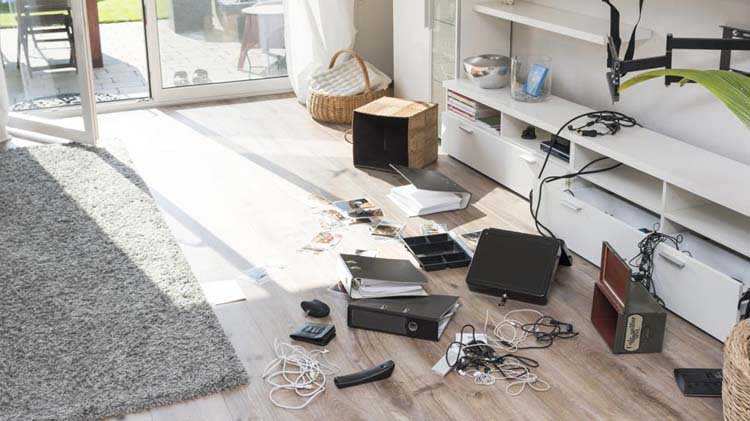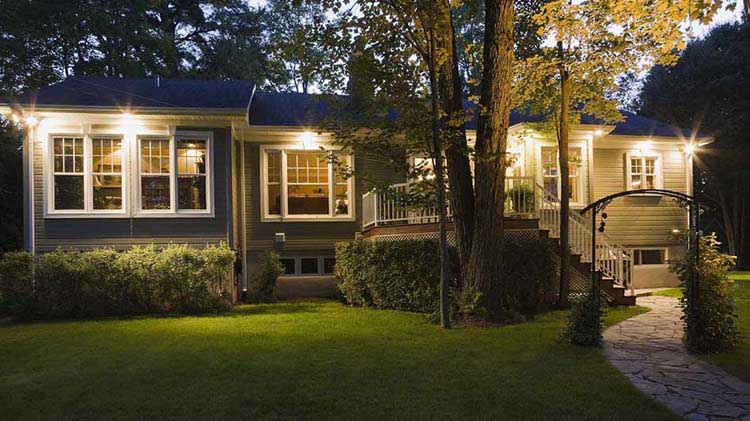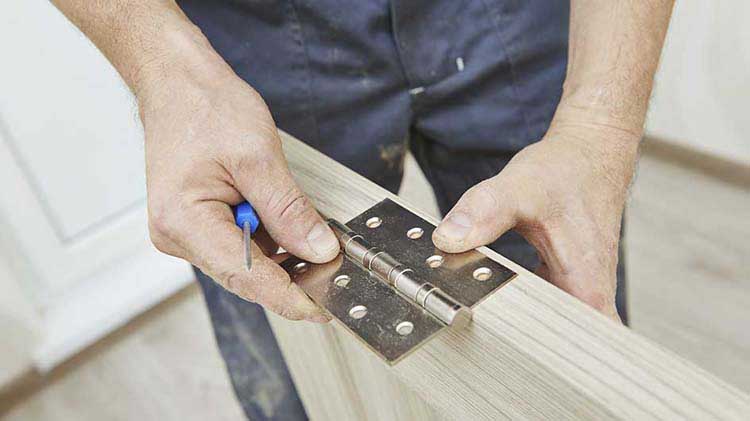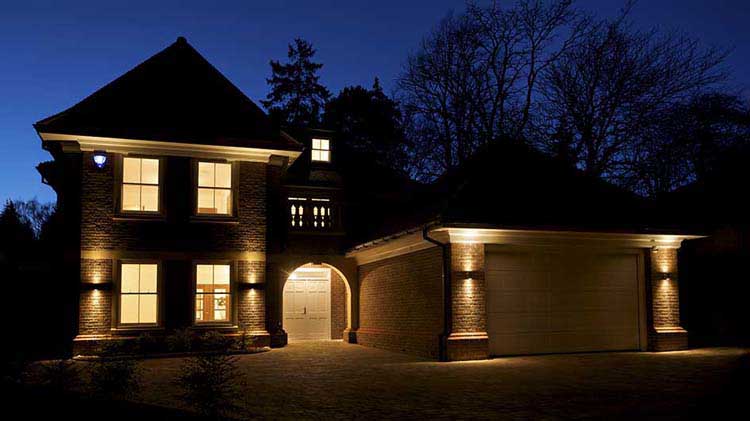Protect yourself against home burglary
A home burglary can happen anywhere, whether you live in a house, a condominium or an apartment, in the city, suburbs or a rural area. In fact, over 4,500 home burglaries occur daily in the U.S. Don't let your home become another statistic.
Even if you're not there when it happens, a break in can permanently shatter your feeling of security at home. Fortunately, taking a few simple precautions could dramatically reduce the risks of an invader gaining access to your home and keep your home or apartment in tip top shape.
Lock your doors and windows
Believe it or not, it's often the simplest and most obvious precautions that homeowners tend to forget and which burglars tend to exploit. Maybe you've lived on the same street for decades and doubt it could ever happen to you. Maybe you're in a rush and skip the usual routine.
Whatever the situation, you should always lock your doors and windows when you go out. Keep close track of any spare keys that exist. Do you know where they are? Do you trust who has them?
How to protect your home from burglary:
- Do not have money or jewelry lying out in view from a window. Consider purchasing two fire-resistant safes: One for your valuables and one for important documents and data. To protect your safes from theft, bolt them to the floor.
- Don't tell strangers your daily routines, and avoid telling others about the valuables in your home. If you're at home working outside, leave all other doors that are out of sight locked.
- Don't leave tools or ladders in your yard. Burglars may use them to gain access into your home.
- Be wary about posting your vacation plans and updates on social media websites — even though you trust your friends, you never know who might learn that you're not home.
- If you have children, discuss home security with them, such as not talking with strangers about their home, its contents or family schedules.
- Keep a detailed inventory of your valuables, including the date of purchase, price paid and serial numbers.
{{quote-token-renters-large}}
How to stop burglars from targeting your home
Fool burglars by making your home look occupied all the time.
- Have automatic timers installed to turn lights on and off in different rooms at different times.
- Consider timers or photocell controls to ensure your outdoor lighting is on from dusk to dawn. Or you can install motion-activated lighting, featuring sensors that turn on the lights only when motion is detected. You can even combine dusk-to-dawn and motion-activated lighting with Hi/Lo sensors.
- Always park your cars in the garage with the garage door shut. A burglar may otherwise notice a pattern that a closed garage door or no cars in the driveway means no one is home. Closing the garage door and having curtains or blinds on the garage windows also hides some of your belongings.
- Never leave notes on your door that can tip off burglars to your plans.
Make your home a tough target
The average burglar will spend no more than four to five minutes trying to break into a residence. Keep your property safe by making your home an inconvenient mark.
- When moving into a new residence, have the locks changed.
- Consult a good locksmith to make sure you have the right types of locks on your doors and windows and that they're all functioning.
- Secure your exterior doors and any doors from attached garages by installing good quality deadbolt door locks, doorjamb reinforcement, reinforced hinges, security-type door strikes and strong, properly installed doors and door frames that cannot be spread apart.
- Look for a deadbolt lock that has been given a Grade 1 rating from the American National Standards Institute (ANSI). The ANSI tests locks for security and durability and gives them a Grade 1, 2 or 3, with Grade 1 being the best.
- Secure your windows by installing additional locks and installing impact-resistant glass on any windows within 42' of a door lock. This will make it more difficult to break the glass, reach in and unlock the lock.
- Secure your patio door with a pin-type lock, a key lock, or a steel rod inserted into the door channel.
- Prune lower branches of trees near your house if they could help a burglar gain access to a second story window.
- Set up contact sensors for points of entry, motion detectors or security cameras that can sync to a home monitoring system and be programmed to notify the owner via text, email or phone call when someone enters the residence.
When you're away for more than a day
Extended vacations can change the look of your home, and thieves can often see those changes. If you're going to be away, take measures to make your home appear to still be occupied.
- If possible, have your telephone calls forwarded when you are away from home. Burglars sometimes check to see if someone is home by making a telephone call.
- If you're away for a lengthy trip, have your lawn mowed or raked and have your driveway, porch and walks cleared of snow or leaves. Don't let daily deliveries pile up while you're away.
- Have a trusted neighbor pick up the mail and newspaper. If possible, do not have either stopped. That gives information about you being away from home to others whom you do not know. If not possible, request that your newspaper delivery service be paused until you return.
- If you are away from home on garbage pickup day, ask a trusted neighbor to put your garbage cans out to the street and take them back in. Burglars sometimes check for empty cans as a sign the family is away.
Be a good neighbor, too
Protecting yourself against break ins goes both ways. Just as you rely on them, your neighbors rely on you to keep the whole neighborhood safe.
- Organize or participate in an Apartment Watch or Neighborhood Watch program.
- Arrange for a local police officer to complete an apartment security survey, or educate your neighborhood about specific safety concerns.
- If you're renting, the outside of your building and the parking lot should be brightly lit. The more light you have, the fewer hiding places burglars will have. Notify management if you notice burned out light bulbs, dark corridors, broken locks on mailboxes and doors and/or other safety concerns in shared spaces.
- Call the police immediately if you see suspicious activity in your neighborhood.
Read more about protecting your residence and ways to deter burglary.




